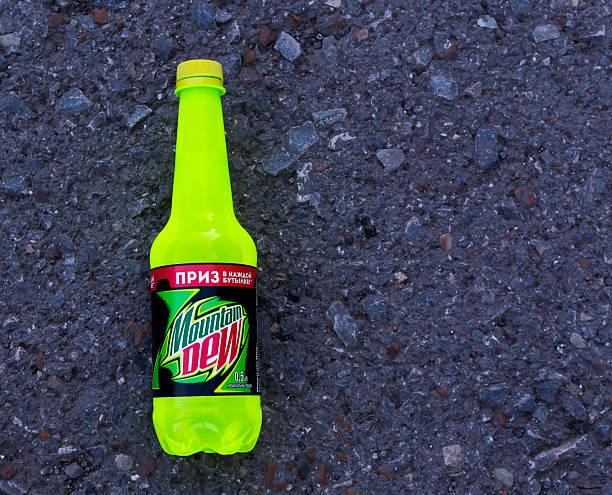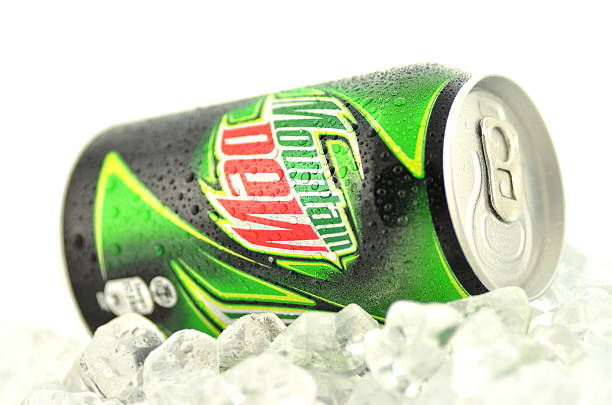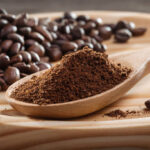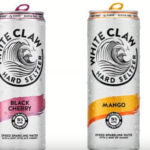In the bustling world of carbonated beverages, Mountain Dew stands out not just for its vibrant color and bold flavor, but also for its caffeine content, a subject of much curiosity and debate. Since its inception in the 1940s, Mountain Dew has evolved from a regional favorite into a global phenomenon, under the stewardship of PepsiCo. This transformation has been fueled by its unique taste and the energetic kick it provides, distinguishing it from caffeine-free citrus sodas like Sprite and 7-Up. But does Mountain Dew have caffeine? And if so, how much?
Navigating the landscape of caffeine consumption can be complex, with health guidelines and dietary recommendations offering varying thresholds for what’s considered safe. Understanding the caffeine content in beverages like Mountain Dew is crucial for consumers looking to manage their intake, whether for health reasons or simply to satisfy their curiosity. This article dives deep into the heart of Mountain Dew’s caffeine mystery, comparing it with other popular beverages, and exploring its potential impacts on health and wellness.
Our exploration is backed by rigorous research and an in-depth analysis of Mountain Dew’s composition, offering readers a comprehensive guide to making informed decisions about their beverage choices. Whether you’re a die-hard Mountain Dew fan, a casual soda drinker, or someone concerned about caffeine consumption, this article promises to shed light on the questions that bubble up around this iconic drink. So, let’s pop the lid on this intriguing topic and explore what makes Mountain Dew a subject of fascination and debate among soda enthusiasts and health-conscious consumers alike.
Contents
History Of Mountain Dew
Mountain Dew traces its roots back to the 1940s in Tennessee. Created as a mixer for whiskey, it garnered a reputation as “hillbilly” soda. The Mountain Dew brand was acquired by Pepsi in 1964, and the rest is history.
With a one-of-a-kind taste, Mountain Dew soon stood apart from other lemon-lime sodas like 7Up and Sprite. Its energizing quality also set it apart. So what explains Mountain Dew’s buzz? The answer is caffeine.
Mountain Dew’s Distinct Citrus Kick
Mountain Dew has a distinct citrus flavor profile:
- Sweet – corn syrup provides signature sweetness
- Sour – concentrated orange juice adds tartness
- Citrus – lemon and lime juices create bubbly zing
When blended in Mountain Dew’s exact proportions, these ingredients give it a flavor pop unlike any other soda.
Caffeine Content in Mountain Dew

Now let’s look at the caffeine numbers. A 12-ounce can of original Mountain Dew contains:
- 54 mg caffeine
This caffeine amount is synthetic, not natural. Most sodas use synthetic caffeine to standardize the stimulating effect.
54 mg lands on the higher end of sodas, giving Mountain Dew its energizing personality.
FDA Guidance on Daily Caffeine
How does Mountain Dew fit with caffeine consumption guidance?
The FDA advises limiting caffeine intake to:
- 400 mg per day for healthy adults
- 100 mg per day for teens
One can of Mountain Dew contains 54 mg, or 14% of the adult threshold. Consumed occasionally, it fits within moderate caffeine intake. But drinking multiple cans could push past advisable limits.
Mountain Dew’s Sugar Content
In addition to caffeine, Mountain Dew contains substantial sugar:
- 46 grams per 12 oz
The American Heart Association recommends limiting added sugar to:
- 36 grams per day for men
- 25 grams per day for women
With nearly half the daily amount in one serving, Mountain Dew is a very high sugar beverage. Too much can pose health risks like weight gain and diabetes. Moderation is key.
Artificial Ingredients
Mountain Dew also contains artificial colors, flavors, and preservatives like:
- Brominated vegetable oil
- Yellow #5
- Blue #1
Research on their health impact is limited. But some consumers prefer avoiding artificial additives when possible.
Caffeine Compared to Other Beverages
How does Mountain Dew’s caffeine stack up to other drinks? Here’s a comparison:
| Beverage | Serving Size | Caffeine (mg) |
| Mountain Dew | 12 oz can | 54 |
| Coffee | 12 oz brewed | 163 |
| Black tea | 12 oz brewed | 47 |
| Green tea | 12 oz brewed | 28 |
| Coca-Cola | 12 oz can | 34 |
| Dr Pepper | 12 oz can | 41 |
| Red Bull | 8.4 oz can | 80 |
Mountain Dew has more caffeine than Coke or Dr Pepper, but less than brewed coffee. Energy drinks like Red Bull contain substantially higher levels in smaller servings.
Why Fans Prefer Mountain Dew?
Given its caffeine content, why do consumers single out Mountain Dew? Reasons include:
- Unique citrus taste – stands out from standard cola flavor
- Energy boost – the caffeine lift without coffee’s bitterness
- Nostalgia – fond memories from childhood and adolescence
- Branding – edgy, youthful marketing resonates
The combination of sensory experience, caffeinated pick-me-up, and brand image come together to give Mountain Dew its cult-favorite status.
Diet and Zero Sugar
There are also low and no-calorie Mountain Dew options:
- Diet – uses aspartame, similar caffeine (54 mg)
- Zero Sugar – uses sugar substitutes, similar caffeine (53 mg)
These provide the classic flavor without calories or excess sugar. The caffeine content stays constant.
Global Differences
Mountain Dew formulations differ internationally:
- Europe – more citrus and less sugar
- Japan – highest caffeine at 92 mg per can
- India – no caffeine to meet regulations
So caffeine levels vary globally based on local taste preferences and restrictions.
Environmental Considerations
A major environmental concern with Mountain Dew is packaging waste, as its aluminum cans and plastic bottles produce substantial single-use waste. Efforts to improve recyclability of packaging could lessen impacts. Water usage in production facilities is another consideration.
An Evolving Brand Proposition

Within the soda category, Mountain Dew fulfills the niche of:
- A soda with caffeine
- A citrus-flavored soda
- A youth-oriented soda
Its brand is built around those energetic, irreverent, and zesty attributes. As consumer preferences evolve, Mountain Dew will adapt while upholding its unique essence.
Cultural Significance
Beyond caffeinated soft drink, Mountain Dew holds cultural significance:
- Southern roots – represents pride in the Appalachian region
- Rebellious image – embodiment of youth counterculture across decades
- Collectability – die-hard fans trade cans and bottles
Its heritage and brand image resonate deeply with its loyal fan base.
Verdict on Mountain Dew and Caffeine
When it comes to caffeine content, Mountain Dew provides a moderate boost at 54 mg per serving. This energizing lift combines with its signature sweet citrus taste to make it a go-to choice for millions of soda fans across the globe.
Conclusion
Moderation is advised when it comes to caffeine from any source, Mountain Dew included. Be mindful of your overall consumption, read labels, and enjoy responsibly. With awareness and balance, you can satisfy your cravings and fuel up wisely.

At the age of 25, chef and owner Michael Scognamiglio opened with confidence Bacco Italian restaurant.







